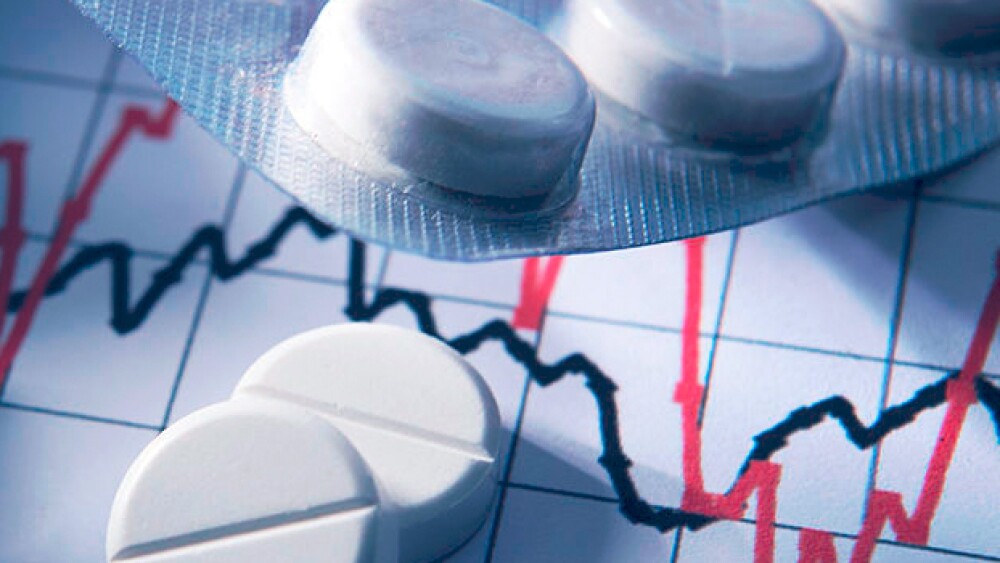One of the growing areas in the medical device industry is new approaches to drug delivery. Here are the top 5 drug delivery companies that you must be aware of.
Meet The Top 5 Drug Delivery Companies
One of the growing areas in the medical device industry is new approaches to drug delivery. Recently, at the 7th Annual Partnership Opportunities in Drug Delivery event, at least five drug delivery companies presented their latest and upcoming projects and products. Here’s a look.
Top Drug Delivery Companies
One of the best drug delivery companies is headquartered in Billerica, Mass., Insulet touts the OmniPod Delivery System, which is a tubeless system to deliver insulin. At the meeting, the company’s vice president of business development, Michael Graffeo, said, “Everybody is staring down the barrel of the costs of adherence. Everybody would like to do something about that. Collectively as a group, what I get is a great deal of angst over what do we do about that, that actually is going to make a difference? Because we’ve attempted to throw solutions at it for years. We’ve been trying to solve adherence challenges for a long time, and we’ve really made no dent in that.”
The OmniPod is wearable, making direct contact with the skin, programmable, and waterproof, using a soft delivery cannula.
The company recently signed a deal with DexCom to provide the Omnipod System and a $200 gift card from Dexcom that could be used toward the purchase of a Dexcom G5 Continuous Glucose Monitoring (CGM) system for qualified Animas insulin pump users.
Since Becton Dickinson is one of the largest medical device companies in the world, it’s probably no surprise it’s involved in innovative drug delivery development. One of its efforts is on developing delivery systems for complex biologics. For example, its Libertas wearable injection.
At the meeting, the company’s associate director of marketing, Janice Adkins, says, “We are all seeing the need or the desire to move injection of biologics from your standard or traditional healthcare setting to home care delivery settings. That is also driving the transformation or the shift of injection of drugs or infusion of drugs from intravenous infusion to subcutaneous delivery.”
Libertas is a pre-filled, disposable, single-use, wearable injector that can deliver up to 10 mL of drugs. It uses Neopak refill syringe, which is designed specifically for use with biologics, and features BD’s Penta Point needle technology, which uses a lower injection pressure.
Based in Cincinnati, Ohio, Enable is among the popular drug delivery companies, and it enable Injections focuses on devices that lets patients self-administer high volume, high viscosity drugs. It offers a wearable device, the Enable Injector, which offers a “pause function” that lets the users pause the injection at any time.
Mike Hooven, Enable Injections’ chief executive officer, said at the meeting, “I think you’re all familiar with the challenges for subcutaneous delivery of biologics. The concentrations are getting higher. The volumes are getting bigger. And what we know is that you can have a great deal of discomfort if you inject too quickly. If you’re not sensitive to the patient tissue back-pressure, you can actually have skin damage if your pressure is too high.”
The device has the capability of delivering up to 50 mL of drug, and allows for multiple types of containers, including vials, syringes and a pre-filled syringe. The company has more than 30 preliminary partnership deals and is in talks with almost every major biotech and biopharma company.
4. Bespak (Consort Medical subsidiary)
Bespak develops and manufactures drug delivery devices, focusing on inhaler and auto-injector technologies. Part of its business model involves helping customers commercialize their own designs for drug delivery devices as well as developing proprietary designs for its own devices.
Bespak, too, is interested in the challenges of delivering biologics. The company’s global business development lead, Steven Kaufman, said at the meeting, “Gone are the days that the auto-injector is only going to be for emergency use. We’re starting to see whole new patient groups, patients that have cholesterol issues, patients that have issues with asthma that are now going to be required to be using an auto-injector.”
One of its platform technologies is its Syrina portfolio of syringes and auto-injectors.
5. West Pharmaceutical Services
The company designs and produced containment and delivery systems for injectable medicine. It has a broad range of products and services, manufacturing over 40 billion components annually which is a high volume among the drug delivery companies.
Carl Dabruzzi, the company’s senior manager for prefilled systems and delivery, said at the meeting, “Certainly you need a range of products because people are looking for a platform, not only for their new products, but even life cycle management of existing products. Maybe we want to reduce the dosing frequency from a couple times, three, four times a month to one or two times a month and hopefully in the end increase patient compliance.”
One example is the company’s SmartDose wearable injector. It uses a user-loaded injector that can deliver high volumes of viscous drugs. It is also working on a second-generation version of the device, which will be more usable and able to deliver a broader range of drug volumes. Its third-gen device is the first user-loaded product in its SmartDose platform—the main improvement appears to be that the patient doesn’t need to insert the drug cartridge into the injector.





